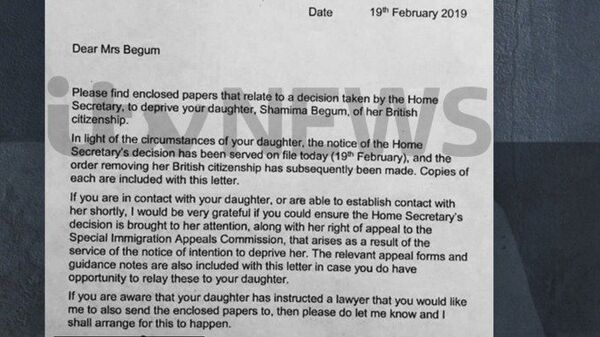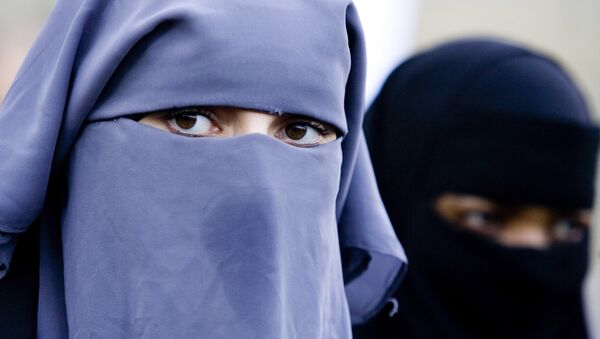Women and girls who attach themselves to Daesh* are driven by more than love or marriage, The Guardian reports, citing research by a counter-extremism London-based thinktank, the Institute for Strategic Dialogue.
To aid those who are working with women and girls returning from Daesh-held territories, the ISD put together guidance that offers an insight into the complex combination of factors that they claim spurs radicalisation.
The guidance, which says it seeks to overthrow the simplistic view carried by the mainstream press that marriage is a dominating factor in many such cases, is based on interviews with intervention providers who worked with more 250 radicalised women and girls in the UK and the Netherlands.
The ISD team says beyond love or marriage, profound feelings of social exclusion, rebellion, and the appeal of sisterhood often motivate the so-called “jihadi brides”.
Undoubtedly, marriage is a factor in many cases, states the research, but adds:
“A simplistic view of the motivations of women and girls affiliated with Islamist extremism can reinforce misleading stereotypes and biases that suggest that women are passive followers rather than active, ideological supporters.”
Travelling to the proclaimed caliphate was perceived by some to be an opportunity for achieving a “true and pure Islamic life”, spurred by a desire to be part of something “bigger and divine”, according to the research.
Other stated factors were feelings of social exclusion or individual experiences of discrimination.
The guidance also says rebellion against society and parents sometime played a factor, along with female empowerment and a rejection of “western feminism”.
Contentious Repatriation Issue
According to unverified reports around 100 British women and girls left the UK to join Daesh, making up 12 per cent of all British citizens who travelled to Syria and Iraq to join the group.
UK judges are currently considering the Home Office’s decision to revoke the citizenship of one such woman, Shamima Begum.
Begum fled to Syria with two fellow pupils from Bethnal Green Academy, in east London in February 2015, married a Dutch convert to Islam, and had three children, all of whom died.
Since surfacing at a refugee camp in February, Begum expressed a desire to return to the UK, although she did not regret joining the terrorist group.

After this and other controversial statements, the then home secretary, Sajid Javid, revoked her British citizenship.
The woman, who is of dual nationality as her parents were born in Bangladesh, launched an appeal against the Home Office’s move, alleging she had been left stateless.
Bangladesh has officially denied Begum has dual citizenship, saying she is a British citizen by birth and has never applied for Bangladeshi nationality.
The UK government claims that under Bangladeshi law, Begun is a citizen by descent, and cannot be made stateless by losing her British citizenship.

According to the woman’s lawyers, Begum cannot go to Bangladesh as “if she arrived covertly she would be hanged."
Against the backdrop of this and other similar high-profile cases, in October, former Shadow Home Secretary and ex- Brexit Secretary David Davis said Britain risks becoming a “shameful anomaly” if it doesn’t repatriate its nationals, as aid organisations, such as Save the Children, have estimated that at least 30 British women and 60 children born to British mothers were living in a camp for Daesh relatives in Syria.
In an article in The Times, Davis stressed that if the government doesn’t address this problem, those children will become Britain’s enemies in the future.
"There is no excuse whatsoever to abandon these children. Indeed they are the legal responsibility of the British state. Other countries have already repatriated their nationals. The UK is risking being a shameful anomaly on the international stage. The time to act is now”, David Davis wrote in The Times.
The 60 British children caught in the violence in north-east Syria must be repatriated. If we to do nothing, we will see these children again. But it will not be as functioning members of society. It will be as our enemy on the battlefields of the future. https://t.co/L2oyNcOkTG
— David Davis (@DavidDavisMP) October 27, 2019
*Daesh (ISIL/ISIS/Islamic State), a terrorist group banned in Russia and a number of other countries


